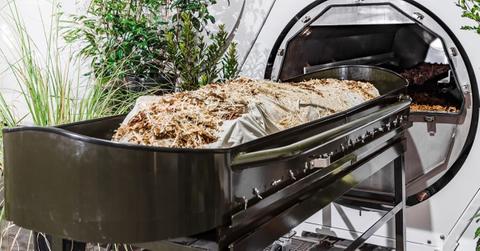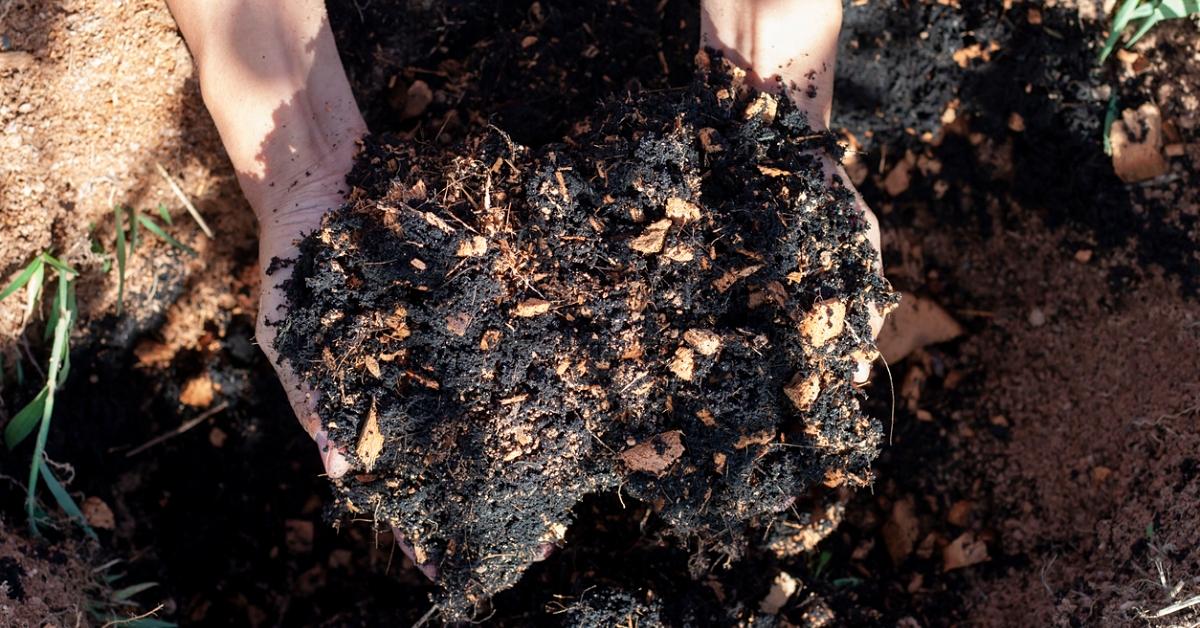This Southwestern State Could Be the Next to Legalize Human Composting (Exclusive)
Published Jan. 17 2024, 4:56 p.m. ET

When we think of composting, images of decomposing coffee grounds, plant trimmings, and various food scraps come to mind. It's not a glamorous operation, but it's vital for reducing waste and creating a healthy soil, all from organic materials.
You know what are also considered organic materials? Human corpses.
It may feel macabre to use your late grandmother's remains to nourish the backyard rose garden, but human composting is much more sustainable than both cremation and traditional burial. Also known as natural organic reduction, human composting is legal in seven states: Washington, Colorado, Oregon, Vermont, California, New York, and Nevada as of this writing. Arizona could be next.

In January 2024, Arizona state lawmakers are considering a bill — nicknamed the “Grandpa in the Garden” bill — that would allow human composting, as per AZ Family. Introduced to the Arizona House by Representative Laurin Hendrix, HB-2081 could make the state's death care industry a whole lot greener.
Eco-friendly funeral home Recompose actively works to educate the public on empathetic and sustainable death care, and legalize human composting across the country. The Seattle-based company even has a webpage encouraging people to take action in making the Arizona bill a reality.
In discussion with Green Matters, Recompose founder and CEO Katrina Spade — who's credited as the inventor of the modern human composting process — touched on the importance of sustainable death care today, the overwhelming sensitivity surrounding mortality, and the need for green body disposition options in Arizona.
Katrina Spade knows human composting makes some uncomfortable: "I think it's natural to have mixed feelings when talking about death."
Some people feel iffy about throwing deceased loved ones in the compost bin (not literally), and Spade is fully aware that it's a touchy subject.
"Personally, the fact that human composting exists makes it easier for me to contemplate my own mortality. I'm comforted by the idea that, after I die, I'll be able to return to nature," Spade exclusively tells Green Matters via email. "I also love the idea of becoming part of a tree, or a whole forest."
Recompose sees human composting as a healing method for birthing new life. By turning human remains into healthy soil — via a process that sees a human body enter a composting vessel alongside wood chips, alfalfa, and straw — bodies become one with the earth, "sequestering carbon and improving the health of our natural surroundings," as per Recompose.
But even if you can't get on board with the cyclical beauty of human composting, the horrific environmental impact of traditional death care may change your perspective.
With the climate crisis in the air, sustainability in the death care industry is especially important today.
"We are seeing many of our clients choose Recompose because they hate the idea that their last gesture will be harmful to the environment," Spade explains.
To put things in perspective, Spade spoke about the alarming data surrounding traditional burial in her 2017 TED Talk, "When I die, recompose me."
In U.S. cemeteries, we bury exorbitant amounts of metal, wood, and "formaldehyde-laden embalming fluid," according to Spade. Extensive natural resource and carcinogen usage? Now that's macabre.
Spade went on to discuss how cemeteries across the world are reaching capacity, which has inevitably led to a rise in cremation.
According to the NFDA, the cremation rate in the U.S. is expected to go up from 60.5 percent in 2023 to 81.4 percent by 2045.
Still, cremating a body releases nearly 600 pounds of carbon dioxide into the atmosphere, according to HuffPost. So no, cremation isn't a sustainable way to go out.
The NFDA's 2023 Consumer Awareness and Preferences Report revealed that 60 percent of people would be "interested in green funeral options" for reasons like environmental impact and attractive pricing.
Though human composting isn't legal in Arizona just yet, Recompose proudly serves clients from the Southwestern state.
"Recompose already serves clients from Arizona; when they die they have their bodies transported up to our Seattle facility," Spade explains.
"That tells me that there's a real need for green funeral options in Arizona. I think it's a great thing for Arizona to take the next step and legalize natural organic reduction, which would eventually allow a provider to set up shop there," she says.
Whether a loved one wishes to have their soil remains scattered in the flower garden, throughout their beloved house plants, or in their favorite natural environment (be sure to check guidelines for scattering human remains in your state), human composting is perhaps as beautiful as life itself.